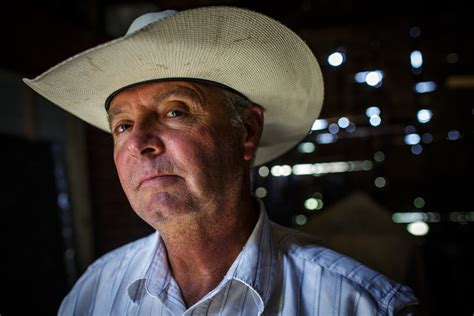A Quote by Barbara Deming
People may find it more comfortable to listen to us if we equivocate, but in the long run only words that discomfort them are going to change our situation.
Related Quotes
If we pursue this way, if we are decent, industrious, and honest, if we so loyally and truly fulfill our duty, then it is my conviction that in the future as in the past the Lord God will always help us. In the long run He never leaves decent folk in the lurch. Often He may test them, He may send trials upon them, but in the long run He always lets His sun shine upon them once more and at the end He gives them His blessing.
When we find ourselves in the same situation repeatedly as a result of our conditioned responses, we must stop and do a new thing. The situation may look different. The route we take there may be altogether different. The lesson we must learn does not change. Get honest! Pay attention! Change what you do to create a change for yourself!
I feel like we're always on the edge of someone standing up and saying, "Hey, the emperor's naked." I'm expecting that any second. But we're pretty lucky that way. The longer you do this, the more treacherous it can be, and the more pitfalls and sort of bad diversions you can find to paint yourself into a corner. But with every record, we try to change the situation, yet still keep it comfortable, and we're lucky to work with people who are inspiring to us who'll give us that extra push. It's nice to make records that are appreciated.
We think that by protecting ourselves from suffering, we are being kind to ourselves. The truth is we only become more fearful, more hardened and more alienated. We experience ourselves as being separate from the whole. This separateness becomes like a prison for us - a prison that restricts us to our personal hopes and fears, and to caring only for the people nearest to us. Curiously enough, if we primarily try to shield ourselves from discomfort, we suffer. Yet, when we don't close off, when we let our hearts break, we discover our kinship with all beings.
Poetry is basically built out of what I think of as being a fairly political act at its core: "I'm not going to listen to how you described things. I'm going to look at them much more intensely and carefully than most people do, and certainly more intensely than our culture wants us to." The mission of the poem, of course, is to try to find the way to do that in the smallest amount of space possible.
Surrendered people understand that they can’t always change a situation, especially when the door is shut. They don’t try to force it open. Instead, they pay attention to their own behavior, look at the situation at hand, and find a new, different, and creative way to get beyond the obstacles. They are comfortable with uncertainty.
We can cooperate more easily with those who more easily intelligible to us, who are more familiar to us. But the advantages of specialization of labor often push us in the direction working with people who have different strengths and viewpoints than we do. I think that this is one major reason why moralities are always subject to change, because some of the people we cooperate with are going to be different from us in ways that often lead them to have different value orientations than we have; and interacting with them can change us.
Sadly enough, my young friends, it is a characteristic of our age that if people want any gods at all, they want them to be gods who do not demand much, comfortable gods, smooth gods who not only don't rock the boat but don't even row it, gods who pat us on the head, make us giggle, then tell us to run along and pick marigolds.



































